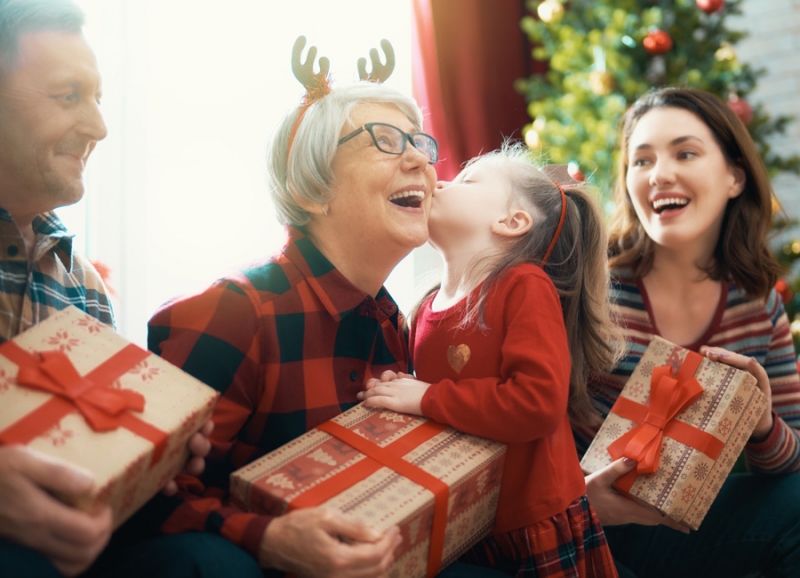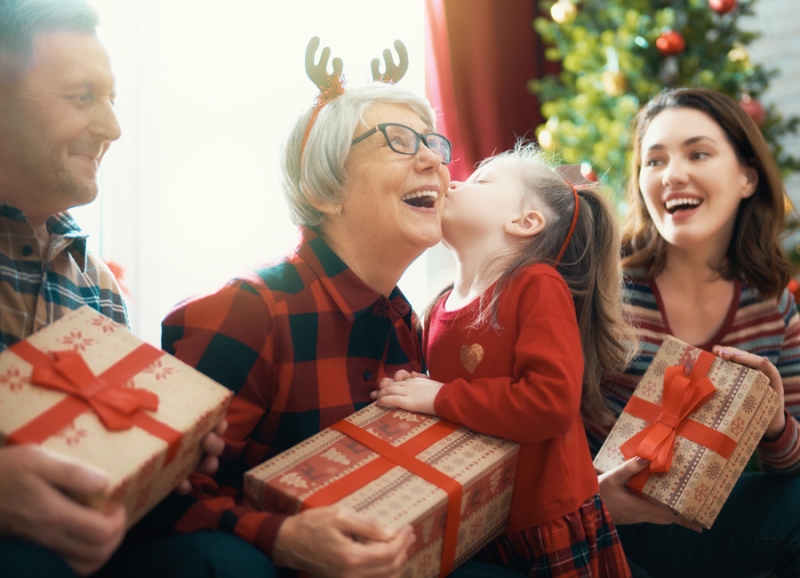Finding the time for holiday shopping, selecting the right gift for each person at the best price – it's enough to stress out even the jolliest of shoppers. When you have a loved one in assisted living, it can be difficult to know what to gift that person. To help you avoid defaulting to baked goods and gift cards, try the suggestions on our list: “Mindful Gift Giving for Loved Ones in Assisted Living”.
What is Mindful Gift Giving?
A mindful approach to gift giving can ease your shopping stress, help you find greater joy in the giving process, and provide your loved one in assisted care with a more meaningful holiday experience.
To give mindfully, you must give some thought to what you know about your loved one in assisted care and pay attention to what is important to them or needed by them. Mindful gift-giving also requires that you slow down and give thought to why you are giving the gift. You can discern this by engaging in the following simple, pre-shopping exercises:
- Jot down, on paper rather than using a device (it’s more mindful this way!) the name of your loved one.
- Record what you know about the person, as they are, right now, in there senior living space:
- What are their likes, their hobbies, their passions?
- What are their pet peeves (we’ll get back to this one)?
- How do they spend their day? What could make their day easier or the time pass more meaningfully for them?
- What causes are important to them?
- Do they have an unmet need that you’ve observed?
- Contemplate the gift with care and intention. Is a physical gift the best choice for this person, or, is the best choice an experiential gift, such as time spent with you or out with friends? (see our list below)
- List ideas for gifts related to what you know about the person (Step 1) – include options for both physical gifts (within your budget) and experiential gifts.
Mindful Gift Giving for Loved Ones in Assisted Living
The gift of presence. If you recognize that your loved one is lonely – missing their significant other who has passed, or not socializing much at their care facility, give the gift of being there with them. Bake holiday treats together, put on holiday classic music from their generation, and stream a few holiday movies. Play games or make holiday crafts, together.
The gift of skill or talent. Maybe someone needs your unique skills. If you draw, paint, take pictures, offer to do a portrait of the person – make them feel like a model for a day; then hang the portrait when it is ready. If you are an excellent cook, plan a time to create a few day’s worth of healthy meals or snacks (*aligned with their dietary needs). Then, sit down to enjoy one of those meals, together. Or, teach the person your craft or skill.
The gift of memories. Write a note, a poem, or create a collage of photos and captions of special and everyday experiences that you’ve shared with your loved one or that they’ve shared with others across their lifetime. Reminding them of these special times and giving a memento such as this is a wonderful way to give a gift that keeps on giving.
The gift of helping hands. If you noticed they have an old radio with poor reception, update it. Or, if they are still tech savvy, gift them a digital music player and teach them how to use it. (preload it with tunes they will enjoy). Are there repairs to be done around their assisted living apartment that the on-site maintenance doesn’t take care of? Step-up and help out with that.
If there are grandkids around, all of these mindful approaches provide an opportunity to create lasting memories, and to share in one another’s life experiences.
With this mindful gifting approach, you can add joy and meaning to the holidays for yourself and your loved one.
If you need more ideas, check out this article from Harvard Health. If you still want to go to a traditional route with gift, have a conversation with your loved ones CNA or other on-site care provider before you purchase something that either don’t need or can’t have in their assisted living space.
Everbrook Creates Home for Seniors at Every Level of Care
Everbrook Senior Living embraces the unique needs and qualities of each of our residents. Muchmore than just a place to live, it is our goal to provide a home for every resident. We are involved in every aspect of the design of exceptional, elegant, and affordable residences from independent living to assisted living and hospice care. We offer first-in-class health and wellness programs that are backed by the latest research. Our team of professionals are thoroughly assessed and bring to their work a devotion to the care of older adults, a willingness to learn from them, and the ability to their interests, personal needs, and sense of community.
Come see for yourself: schedule a visit, today.






